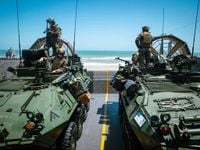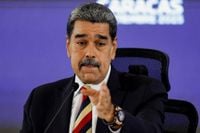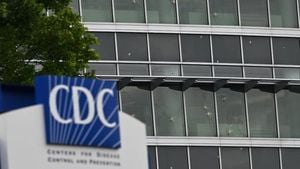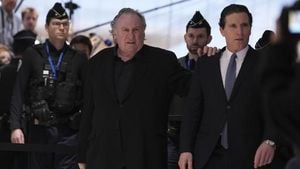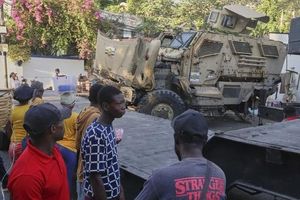On September 1, 2025, Venezuelan President Nicolás Maduro stood before international media in Caracas, his tone defiant and his message unmistakably clear: Venezuela, he said, was at "maximum preparedness" and ready to respond to what he described as the greatest threat the continent had seen in a century. According to the Associated Press, Maduro warned, "In the face of this maximum military pressure, we have declared maximum preparedness for the defense of Venezuela."
The catalyst for this heightened alert was a significant escalation of U.S. military presence in the Caribbean. The U.S. Navy, as reported by several outlets including El País and Anadolu Agency, has deployed two Aegis guided-missile destroyers—the USS Gravely and USS Jason Dunham—alongside the USS Sampson and the cruiser USS Lake Erie, with more warships, including three amphibious assault ships carrying over 4,000 sailors and Marines, expected to enter the region. Notably, Maduro claimed, "There are eight warships with 1,200 missiles, and a nuclear submarine aimed at Venezuela," a force he called "an extravagant, immoral, and bloody threat."
The Trump administration’s stated rationale for this deployment is to combat Latin American drug cartels, which it links to members of the Venezuelan government. President Donald Trump, as noted by the AP, has made clear his intention to use military might to stem the flow of fentanyl and other illicit drugs into the United States, blaming such cartels for violence in American cities. The U.S. has not signaled any intent for a land incursion, but the scale of the maritime operation has alarmed Caracas and drawn international attention.
In response, Maduro’s government has mobilized troops along Venezuela’s coastline and its border with Colombia, urging civilians to join a militia. As El País reported, the government has called for the enlistment of militia members and ordinary Venezuelans to resist any hypothetical foreign military incursion. "If Venezuela was attacked, we would declare an armed struggle and a Republic in arms," Maduro warned at his press conference, echoing his pledge to constitutionally declare a "republic in arms" should U.S. forces attack.
Diplomatic relations between the United States and Venezuela have deteriorated sharply over the past year. Where once there were official visits and handshakes, today there are direct accusations and threats. The U.S. government has accused Maduro of leading a criminal organization known as the Cartel of the Suns, and the Trump administration has doubled the bounty for his capture to $50 million. As El País and Anadolu Agency both highlighted, Maduro responded: "If you’re looking for a mobster, look elsewhere. What you can look for here is a revolutionary who has a people and an Armed Forces backing him. I’m not a magnate; I don’t have a business or wealth, I’m a worker, a fighter, the first Chavista president in history."
Maduro has repeatedly characterized the U.S. deployment as an "extravagant, unjustifiable, immoral and absolutely criminal and bloody threat," and compared the current standoff to the 1962 Cuban missile crisis. "A situation of this nature has never been seen before on our continent. It has never been seen before," he said, warning that the Miami-based Cuban exile community had, in his view, seized political power in the White House and the State Department.
The rhetoric has not been limited to the Venezuelan government. Opposition leader María Corina Machado, who has led calls for international pressure on Maduro since the disputed July 2024 election, thanked Trump and Secretary of State Marco Rubio for the deployment of U.S. vessels. She described the move as "the right approach" toward the Venezuelan government, which she labeled a "criminal enterprise." Republican senators, such as Bernie Moreno, have echoed calls for Maduro’s removal, intensifying the political stakes.
Meanwhile, the United States continues to justify its actions by pointing to the threat of drug trafficking. However, Venezuelan Foreign Minister Yván Gil, citing a United Nations report, argued that the U.S. narrative is based on falsehoods. "Eighty-seven percent of cocaine produced in Colombia departs through the Pacific, and traffickers attempt to move only five percent of their product through Venezuela," Gil told his Latin American counterparts, as reported by the AP and El País. He warned that the deployment "threatens the entire region" and that an attack on Venezuela "would really mean a complete destabilization of the region." During a virtual meeting of the Community of Latin American and Caribbean States (CELAC), Gil called for an immediate end to the U.S. deployment, declaring, "Let us immediately demand an end to this deployment, which has no other reason than to threaten a sovereign people."
Maduro’s government has also appealed to the United Nations for intervention. Requests have been made to Secretary-General Antonio Guterres to help ease regional tensions. Yet, the lines of communication with Washington, while "battered," remain open, particularly with Chargé d’Affaires John McNamara and Special Envoy Richard Grenell, with whom discussions have included prisoner exchanges and the fate of deported Venezuelan migrants. Maduro, however, has reserved his harshest criticism for Secretary of State Marco Rubio, whom he described as a "warlord" and accused of seeking to "stain Trump’s hands with Latin American blood, with a massacre and a war against South America and the Caribbean."
Despite the international pressure and the deployment of military assets, Maduro has stood firm on his claim to legitimacy. He insisted at his news conference that he was the rightful winner of the July 2024 presidential election, even as credible evidence and international consensus suggest otherwise. Many countries, including the United States, refuse to recognize his presidency, citing allegations of corruption, human rights abuses, and election fraud. According to AP and El País, millions of Venezuelans have fled the country in the past decade, escaping the effects of what critics describe as an extremist government.
As the joint U.S.-led naval exercise Unitas 2025 looms on the horizon, scheduled to begin off the U.S. coast on September 15, the region watches with apprehension. Maduro’s warnings, the U.S. military buildup, and the flurry of diplomatic activity have all combined to create a climate of uncertainty, not just for Venezuela but for Latin America as a whole. Whether this standoff will escalate further or give way to dialogue remains to be seen, but for now, the Caribbean is a flashpoint—and the world is watching.
